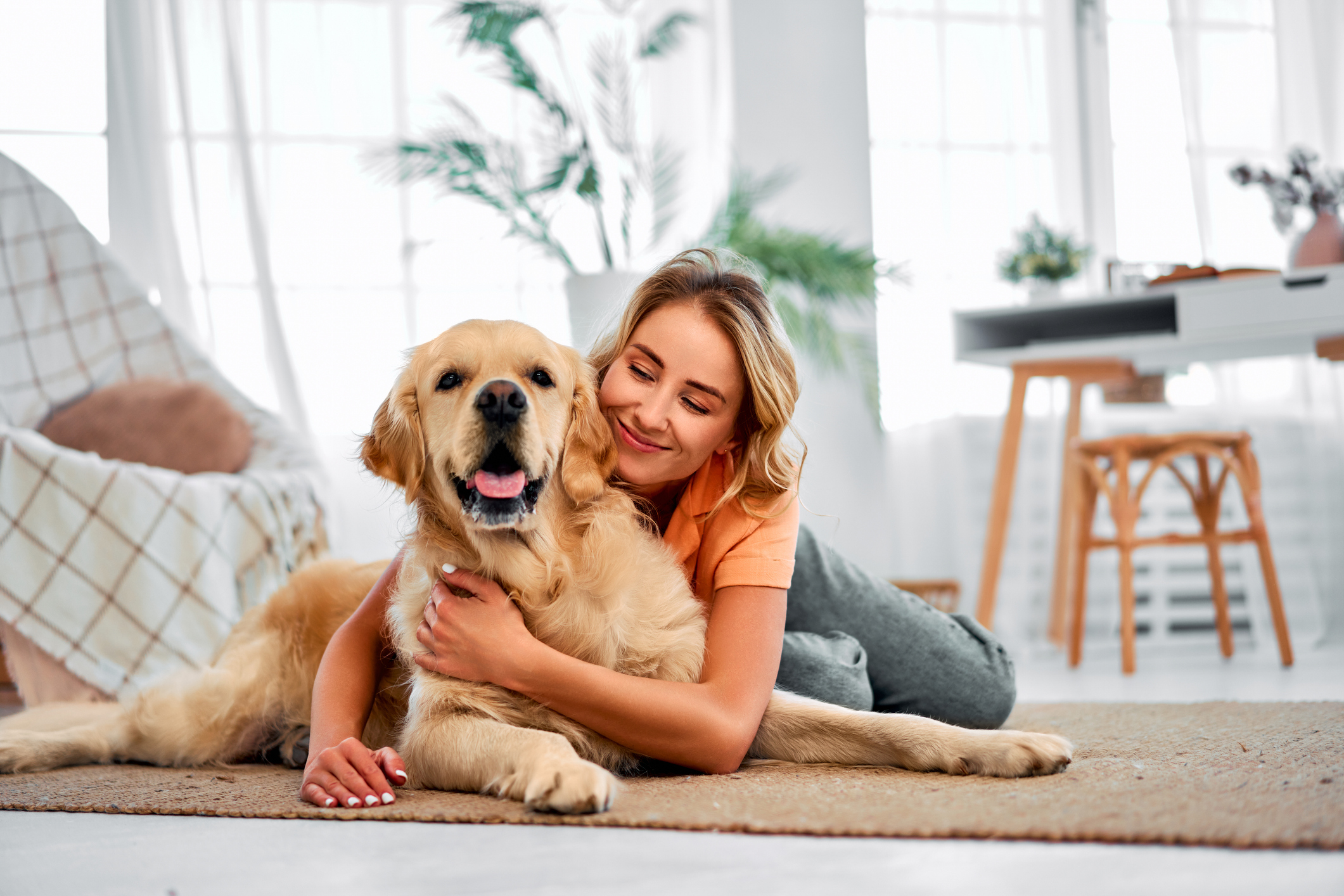
A recent viral TikTok video unveiled the four signs your dog thinks you are their mom—following its human around; bringing toys; maintaining eye contact and licking their face; and snuggling beside them.
The video, posted by golden retriever owner @goldenretriever_luna, shows their dog doing exactly that—nearly 40,000 likes and almost 700,000 views. But while the comparisons are adorable and emotionally resonant, how accurate are they from a scientific point of view?
Experts told Newsweek that the truth is a little more nuanced—but no less heartwarming.
“Dogs don’t truly recognize humans as a maternal figure in a biological or identity-based sense … but they often see humans as a source of safety and security; the way kids see their moms,” Dr. Jennifer Sperry, a veterinarian and adviser to Pets Plus Us Pet Insurance. told Newsweek.
Harbucks/iStock / Getty Images Plus
1. They Follow You Everywhere
Sperry said that dogs often follow their humans due to a strong emotional bond.
While they may not cognitively recognize us as “mom” in the biological sense, they do tend to associate us with safety, comfort, and security—mirroring the way a child might view a parent.
This attachment, sometimes called “secure-base behavior,” means dogs feel braver and more confident exploring the world when their human is near. However, Sperry added that constant clinginess—especially if it is new behavior—might signal something more serious, like illness or separation anxiety. In such cases, it is best to consult a vet.
2. They Bring You Toys
When dogs bring you toys, they are often doing more than inviting you to play. Sperry said toy offerings can serve multiple functions: a social gesture to reinforce bonding, a play solicitation, or even a form of self-regulation during moments of high excitement or stress.
In retrieving breeds, especially, carrying a toy can be a comforting habit. Some dogs may present their toys almost like a gift to demonstrate social value—”look at what I have!”—echoing a pack-like desire to belong.
3. They Lick Your Face
Licking is one of the most-misunderstood canine behaviors. While many owners interpret face-licking as affection, it can actually mean different things depending on context.
Sperry said that licking is often an appeasement gesture—a way for dogs to express submission, seek attention, or cope with stress.
Relaxed licking paired with loose body language likely indicates love and contentment. But if it is paired with lip licking, a tucked tail, or pacing, it might signal anxiety or discomfort.
4. They Sleep Beside You
Deby Cassill, an integrative biologist at the University of South Florida, told Newsweek that dogs see their humans in roles similar to parents within a canine pack.
“Moms are a source of comfort, food, security, and a teacher; dads are a leader, a protector, and a teacher,” Cassill said. Dogs raised in secure homes often model their behavior after these roles, seeking closeness during vulnerable moments—like sleep.
Dogs tend to sleep near those they trust most, especially during uncertain times like thunderstorms, travel, or illness.
The Human Animal Bond Research Institute says that humans also benefit from co-sleeping with pets—it can increase feelings of security and reduce loneliness.
Dogs and the Parent-Child Parallel
Cassill said that while dogs don’t “see” us as their biological parents, they do develop family-like attachments.
Dogs raised in nurturing homes tend to be calm, playful, and responsive. They watch their humans closely, looking for emotional cues, and often mirror their owners’ moods.
An angry or anxious owner may inadvertently cause stress behaviors in their pet—such as shivering, excessive licking, or destructiveness.
Breed also plays a role. Cassill said that different dogs have been bred for different temperaments, so it is important to choose a breed suited to your household—whether that’s a high-energy family or a quiet, elderly individual. “Owning a puppy is much like raising a child,” she adds.
Newsweek reached out to @goldenretriever_luna for comment via TikTok. We could not verify the details of the case.
Do you have funny and adorable videos or pictures of your pet you want to share? Send them to life@newsweek.com with some details about your best friend, and they could appear in our Pet of the Week lineup.
